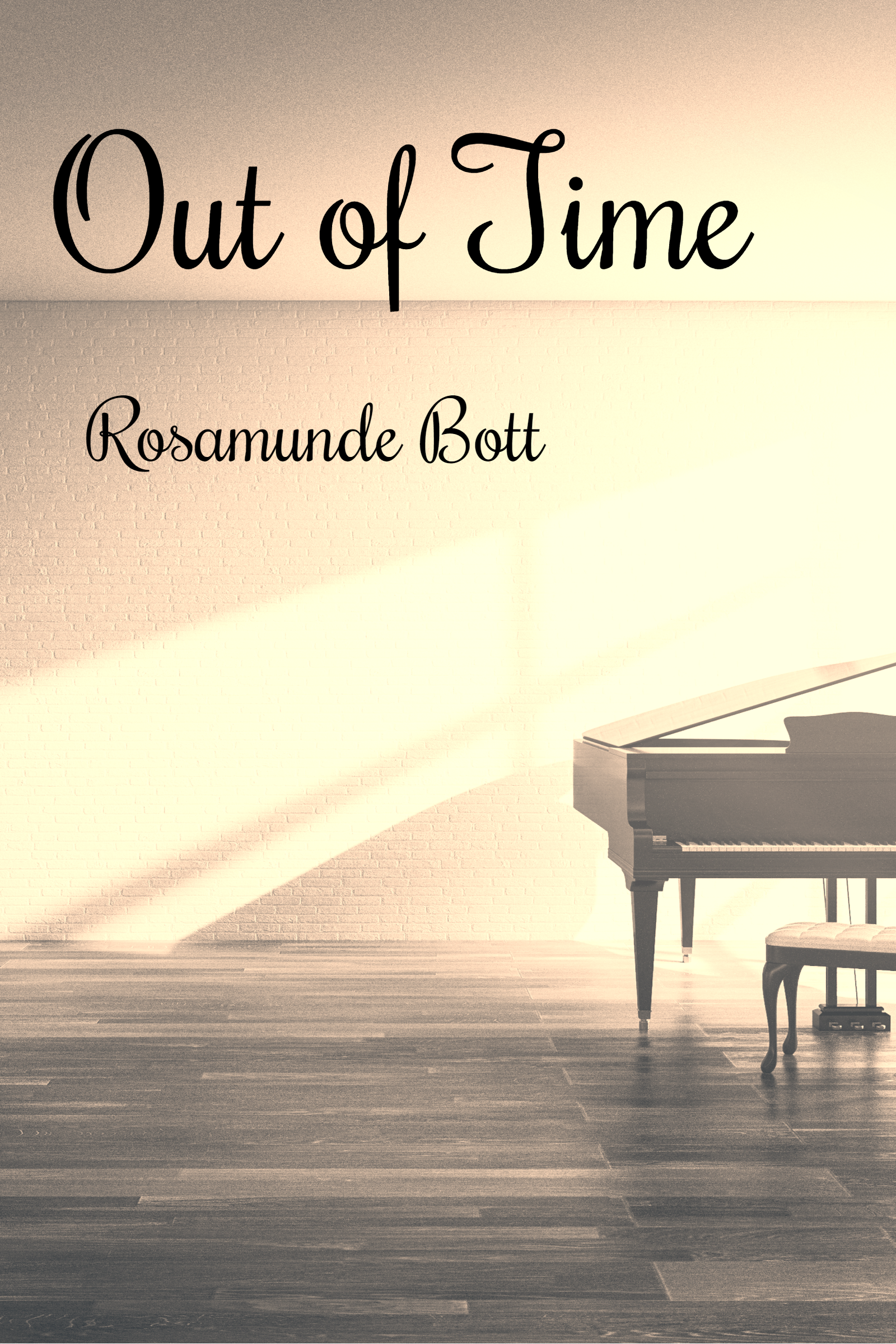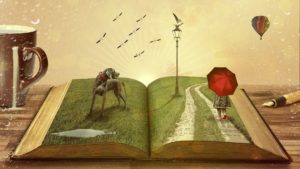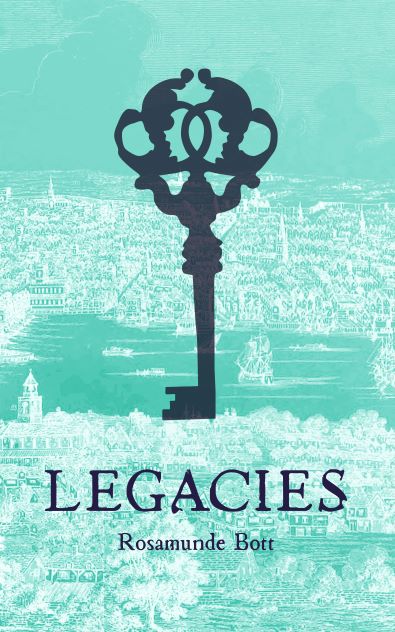Knowing that you want to be a writer is a great thing. Finding topics to write about is sometimes more difficult, especially if you are just starting out as a novelist or short story writer.
One way of finding a plot to work on can be to use online sites that give you lists of plot lines that you can develop into your own story. Personally, these tend to leave me cold and uninspired. For most of us, I think that any idea for a good story has to come from within; something that gives you that spark of excitement; something you know you’re going to enjoy writing and can really get your teeth into.
So, how do you get these ideas? Sometimes ideas come out of the blue, and sometimes you have to work on them. In this article, I’ve investigated what sparked the ideas for the books I have so far produced and published.
Write About What Interests You
The first novel I published was Out of Time, which was about a woman who buys a cottage in a village, and meets a musician who turns out to have lived for 200 years without ageing, and has also known each one of her direct female ancestors back to the early 1800s. She also just happens to be trying to start her own writing career!
This was an idea that I had to work on for a while. I had the unusual luxury of having about six months to spend on writing full time, but there was no ready-made idea, so I sat down and thought, what do I love? What would I like to write about?
I knew that I would like a story where an old house – or perhaps more than one house – was central to the plot. Old houses fascinate me. I’m always wondering about the people who lived there before and what their lives were like.
Secondly, because I was also a professional genealogist, I decided that family history would be an interesting theme, and that the central character would learn about her ancestors throughout the story, and she would find some common links between them and her own life. What really fascinates me about genealogy is how it links the past with the present, and that was an idea that I thought I could really bring out in this novel.
Thirdly, I wanted to introduce a bit of magic and quirkiness to this plot. I was a little unsure about my idea for this at first, but I had just read Audrey Neffenegger’s novel, The Time Traveller’s Wife, and I thought, if she can write about a man who time travels within his own life time, then I can write about a 200 year old man who doesn’t age! Thus, the character of Will Days was born, and I loved writing his story.
You don’t have to have it all in your head before you start.
These three basic ideas developed into the story that takes the main character through her ancestry via the character of Will. As the writing progressed, more themes developed, and it became the story of women’s history over 200 years, as well as becoming a love story. This is how creative writing works. You start writing what you want to write, and the themes, characters and plot will develop into something bigger than the initial idea. You don’t have to have it all in your head before you start.
Reading, Learning and Research
For this section, I’m using the example of the next book that I published, Isobel Brite. The initial idea for this book came to me a very long time ago (before I wrote Out of Time) when I was carrying out research for a module in my Open University degree, which also led to a Social History Research Diploma. I was researching local entertainment in the 19th century (I was living in Daventry at the time), and I came across a bundle of letters from actors in a travelling theatre company to the company solicitor dated between 1840 and 1852. One letter writer was particularly prolific, and gave a wonderful insight into the life of a travelling actor at the time. His name was Henry Hartley, and he became a character in my novel.
The letters formed the basis of my research dissertation, but while I was working on them, my writer’s mind kept thinking that the world of the travelling theatre circuits of this period would make a great backdrop for a novel. I had also carried out research on the history of Daventry, and I gradually began to think of a fictional character at the time that Daventry’s coach trade industry was declining as the railways took over. I imagined a young, bored woman looking for a way out of her dead-end life. I mixed in a little bit of one of my fictional heroines, Scarlett O’Hara, and Isobel Brite was born. A shoemaker’s daughter who runs away to join the theatre.
Life got in the way for a while, and I put Isobel on a back burner. However, the characters that I had created (and those yet to be introduced) kept tapping on my shoulder, wanting me to tell their story, and I finally got back to it again and completed it a couple of years ago. That’s another thing that happens once you start writing: if it’s good enough, it won’t let you go!
Write About What You Feel Strongly About
My third example is my novel, Legacies, which I published in 2019. My initial idea for this novel was to write a story that had a bit more grit to it, and that carried a theme of something that I felt strongly about. I abhor all forms of prejudice, and so I decided that it would be one of the main themes of this book. Set in the eighties, two of the main characters were a gay man whose has previously lost a partner to AIDS, and a Jewish woman whose great-uncle helped get children out of Poland and Germany during Nazi occupation. They are the best friends of my central character, an out of work actress, who inherits some family history notes, and a mysterious key that will take her back through her family’s history – which will also deal with various types of prejudice.
Write About What You Know
There were several reasons why I chose to set the main part of this novel in the eighties. Firstly, I had also been a struggling actress in this decade, and I had several gay friends. It was also the time when the AIDS virus was not only killing off many people in the gay community, but had fuelled anti-gay feeling to a higher than normal degree, and I felt this was a good setting for my theme of prejudice. Another reason for setting the main part of the story in this decade was that researching family history was a much harder and slower process than it is now with the internet. I wanted my main character to be frustrated and impatient while she was trying to find out the answers to her ancestry, and it brought in another character, a professional genealogist who helps her with the research and becomes another strong friend. All these things could be drawn from my own life.
Playing with ‘What If…?’
I have a free novel called White Lilac. Currently, it is only available for people who sign up to my newsletter, but I am planning to release it as a permanently free eBook later this year. It was the first novel I wrote, and I’ve edited and adapted it since to bring it up to date.
The initial idea was simple. What if an old portrait could tell you things? At first, I thought it might be some kind of murder mystery, but that’s not what I ended up writing at all! The fantasy aspect of this novel was very subtle. The portrait does not actually speak, but somehow communicates with my main character in a very sensory and emotional way, creating feelings in my character that she does not at first understand. But the portrait somehow leads her out of a less than satisfactory relationship towards meeting her true partner. There are complications, in that the new person is married, albeit unhappily, and her best friend is in love with her current partner.
But the initial idea began the spark that led to – again – writing about what interests me and what I know. It is another family history themed novel, and also has historical chapters, like Out of Time and Legacies.
Get Inspiration from Other Writers
As I’ve mentioned before, I’ve been inspired by writers such as Audrey Neffenegger and Margaret Mitchell’s Gone With the Wind, and reading writers that you love can be great sources of inspiration. Of course, you are not going to copy them, but you can certainly get themes and ideas from them.
The novel I am currently working on I would say is a mixture of what interests me and inspiration from a novel I read a very long time ago: The Source, by James A. Mitchener, in which he tells the history of the Jewish people using historical chapters, but with the device of using a modern day archaeological dig as the main story which links back to all the history chapters.
My own story is based on the history of the Thames river, and will also have a modern day story, and short historical stories for interspersed chapters. I love rivers, and I love London. My idea for this book started out as a desire to follow the course and history of the Thames both physically and by research, and developed into the basis of a novel. It was only later that I realised that the Mitchener novel was there somewhere at the back of my mind, and had probably inspired this idea – and much of my other writing.
I’m aiming to have this novel finished by the end of 2020. Watch this space!
Take Notice of Your Dreams
Several famous writers have had inspiration for novels through their dreams. A few examples are Stephen King’s Misery, Mary Shelley’s Frankenstein and William Styron’s Sophie’s Choice, to name but a few. A chapter of my children’s fantasy novel, The Light of Drumbar, was inspired by a dream I had of a witch’s tower buried as deep in the ground as it was tall above ground.
To summarise, if you’re struggling to find topics to write about, here’s what you need to do:
• Become aware of your own interests, and get involved in them as much as you can. My own career as a genealogist feeds much of my writing. I also love to visit historic places to get a feel for them and gain inspiration. For you, it might be something completely different – but whatever it is, get into it as much as can – as a hobby, a career, or you can take courses in that subject – there are plenty of online course websites where you can learn about your subject in your own time.
• Read as much as you can. Not just fiction, but non-fiction about the things that interest you. In my case, as you can see, one of my main interests is history and ancestry. I read many historical novels and history books. These stir my imagination in ways that I am not always aware of at the time, but can provide meat to the stories I write later.
• Feed on your own experience. Just as I used my own experience as an out-of-work actress in Legacies, think about some of the things you have been through in your own life. What do you know well? What can you use from the difficult times in your life to use as a setting or even the main plot of a novel?
• Play with the ‘What if…’ scenario. Take an idea that you can get from any of the above, and expand it. This is what most writers do when they develop a plot. What if an old portrait could communicate? What if a man lived for 200 years? What if an old key held a secret? When you ask yourself that question, that’s when the ideas can develop into a story.
There is no magic formula here. It’s not a step by step plan. Any of these inspirations can come or be developed at any time during the plot planning and writing process. It’s organic, and exciting, and when you hit on something that gives you butterflies in the stomach, then you know you’ve got an idea you can roll with!



